Understanding Your Cat’s Vomiting: Causes and Concerns
Vomiting in cats is common, but it can sometimes signal an underlying health issue. While an occasional episode may not be alarming, frequent or severe vomiting should never be ignored. Understanding the possible causes, recognizing when veterinary care is needed, and taking preventive measures can help ensure your cat’s long-term health.
At Spring Branch Veterinary Hospital, we are dedicated to providing comprehensive veterinary care to keep your cat healthy and comfortable. If your cat is experiencing persistent vomiting, we encourage you to schedule an appointment for an evaluation.
Common Causes of Vomiting in Cats
Dietary Issues
Cats can develop vomiting from a variety of dietary factors, including:
- Eating too quickly – Some cats eat too fast, leading to regurgitation. Using a slow feeder or feeding smaller meals can help.
- Dietary indiscretion – Ingesting spoiled food, plants, or human foods can cause digestive upset.
- Food allergies or intolerances – Some cats react poorly to certain proteins or additives in commercial diets.
Feeding your cat a high-quality diet that meets their individual needs is crucial for long-term health.
Hairballs and Grooming-Related Vomiting
Hairballs are a frequent cause of vomiting, especially in long-haired breeds. While occasional hairball vomiting is normal, frequent or excessive hairball production may indicate an underlying issue.
Preventing Hairballs:
- Regular brushing to remove loose fur
- Providing a fiber-rich diet or hairball-control formula
- Encouraging hydration to improve digestion
If your cat is experiencing excessive hairballs, our team at Spring Branch Veterinary Hospital can recommend dietary changes or supplements to help reduce them.
Gastrointestinal Infections and Parasites
Various infections and parasites can contribute to vomiting, including:
- Feline Panleukopenia (Feline Distemper) – A serious viral infection that causes gastrointestinal symptoms.
- Bacterial infections – Certain bacteria can disrupt the digestive system, leading to vomiting and diarrhea.
- Intestinal parasites – Worms such as roundworms, hookworms, and tapeworms can cause chronic vomiting.
Keeping your cat up to date on preventive care can help reduce the risk of infections. Regular parasite screenings are an important part of routine veterinary wellness exams.
Chronic Diseases That Cause Vomiting
Several chronic conditions can contribute to frequent or severe vomiting, including:
- Chronic Kidney Disease (CKD) – A common condition in older cats that causes nausea and dehydration. Learn more about chronic kidney disease in cats.
- Hyperthyroidism – Overactive thyroid glands can lead to vomiting, weight loss, and an increased appetite. Read about feline hyperthyroidism.
- Inflammatory Bowel Disease (IBD) – Chronic inflammation in the digestive tract that requires long-term management.
Routine veterinary care can help detect and manage these conditions early. If your cat has ongoing digestive issues, schedule a check-up for a full evaluation.
What Different Types of Vomit Indicate
The appearance of your cat’s vomit can provide clues about the underlying cause:
- Clear liquid – Often due to nausea or an empty stomach.
- Yellow or green bile – May indicate liver or gallbladder issues.
- Undigested food – Could be caused by eating too quickly, food intolerances, or blockages.
- Blood in vomit – Fresh blood or a dark coffee-ground appearance can signal ulcers, internal bleeding, or trauma. This requires immediate veterinary care.
For more information on what different types of vomit may mean, visit Types of Cat Vomit.
When to Seek Veterinary Care
While occasional vomiting is usually not concerning, persistent or severe vomiting may indicate a serious health issue. Contact a veterinarian if your cat is experiencing:
- Vomiting multiple times in one day or several times per week
- Lethargy, weakness, or refusal to eat
- Diarrhea, dehydration, or weight loss
- Blood in vomit or a bloated abdomen
Early intervention is key to preventing complications. Learn more about the importance of routine veterinary exams from the AVMA.
Emergency Signs: When Immediate Care is Needed
Some cases of vomiting require urgent veterinary attention. Seek emergency care if your cat:
- Has continuous vomiting or dry heaving
- Appears extremely weak or collapses
- Shows signs of poisoning, such as drooling, tremors, or seizures
- Has a severely bloated or painful abdomen
If you suspect an emergency, do not delay seeking professional care.
Preventing Vomiting in Cats
Taking proactive steps can reduce the risk of vomiting and promote overall digestive health.
1. Optimize Your Cat’s Diet
- Feed a high-quality, balanced diet appropriate for their age and health condition.
- Transition foods gradually over 7–10 days to prevent stomach upset.
- Use slow feeder bowls if your cat eats too quickly.
2. Hairball Prevention
- Brush your cat regularly to minimize excessive hair ingestion.
- Provide hairball-prevention diets or supplements to support digestion.
3. Hydration and Digestive Support
- Ensure your cat always has access to fresh water.
- Encourage hydration by incorporating wet food into their diet.
4. Routine Veterinary Care
- Annual check-ups allow early detection of chronic diseases and digestive issues.
- Follow a preventive parasite control plan to reduce the risk of infections.
- Learn more about our preventive care services on our pet wellness page.
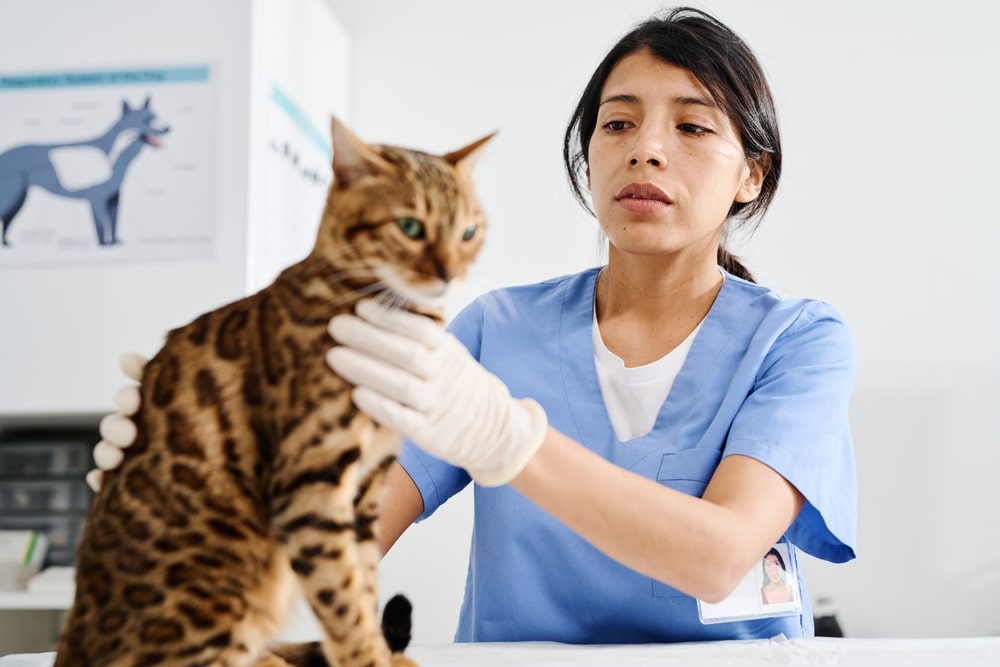
FAQs About Cat Vomiting
How often is vomiting considered normal for cats?
Occasional vomiting, such as a hairball once a month, is usually not concerning. However, frequent or severe vomiting should be evaluated by a veterinarian.
Can stress cause vomiting in cats?
Yes. Changes in routine, new pets, or environmental stressors can lead to vomiting. Ensuring a stable routine and providing enrichment can help reduce stress-related digestive issues.
What should I do if my cat vomits immediately after eating?
Slow down feeding by using a puzzle feeder or feeding smaller, more frequent meals. If vomiting persists, a vet visit is needed to rule out food allergies or digestive conditions.
When should I worry about hairballs?
While occasional hairballs are normal, frequent vomiting of hairballs or difficulty passing them may indicate a digestive problem. Increasing fiber intake and brushing your cat regularly can help reduce the issue.
Supporting Your Cat’s Health at Spring Branch Veterinary Hospital
Understanding when vomiting is a minor issue versus when it requires medical attention is essential for keeping your cat healthy. If vomiting becomes frequent, severe, or is accompanied by other concerning symptoms, schedule an appointment with our team at Spring Branch Veterinary Hospital.
We offer:
- Comprehensive diagnostics to determine the cause of vomiting
- Personalized treatment plans for chronic digestive conditions
- Nutritional counseling and preventive care to promote long-term health
Schedule an appointment today to ensure your cat gets the care they need for a happy, healthy life.


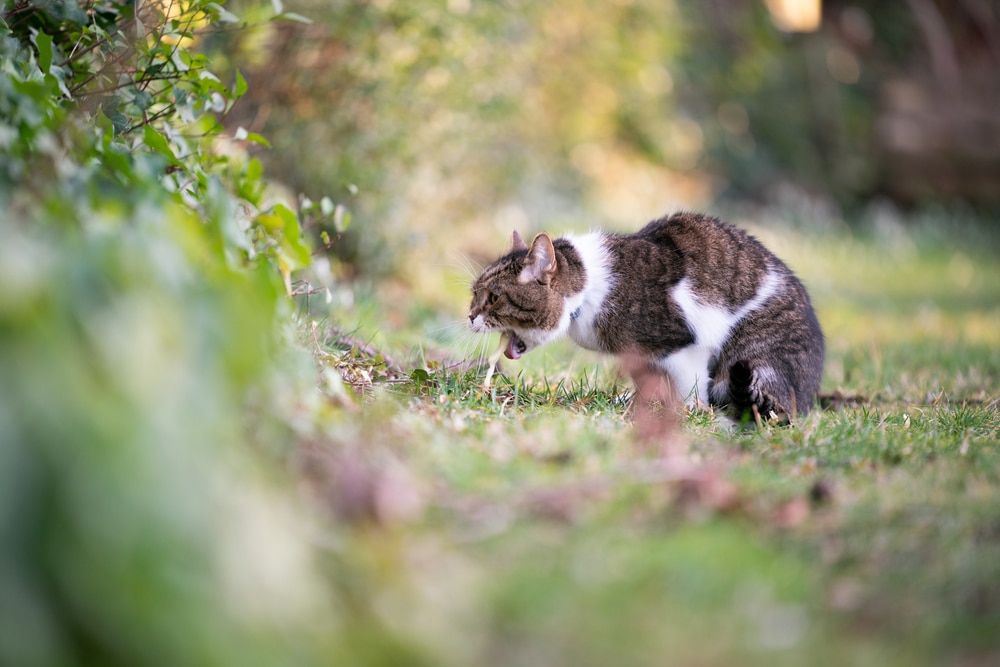
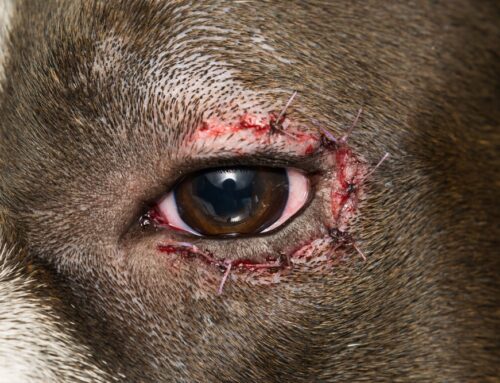
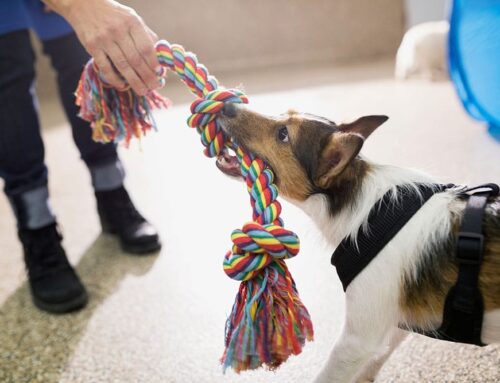
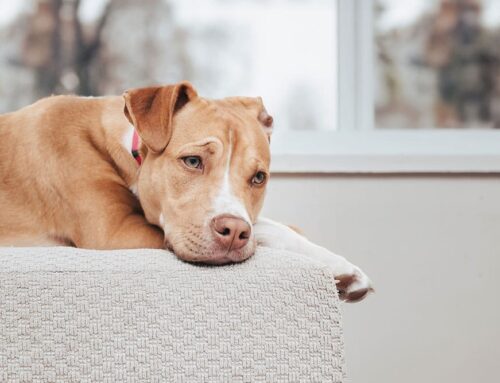
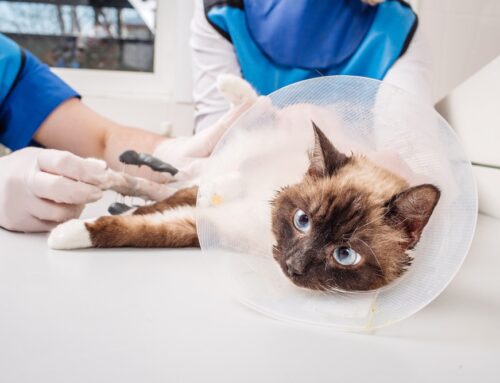


Leave A Comment